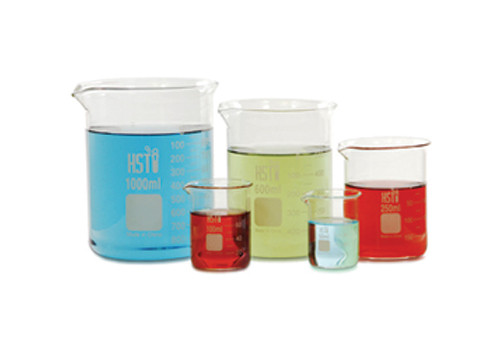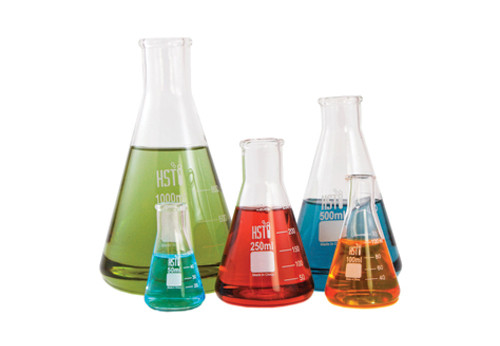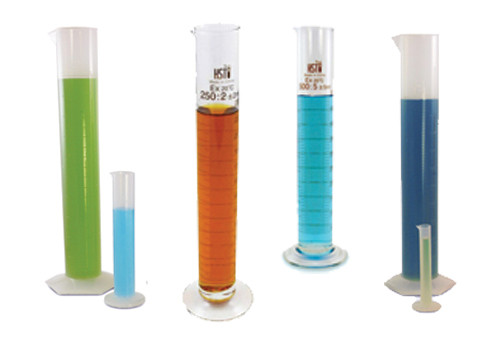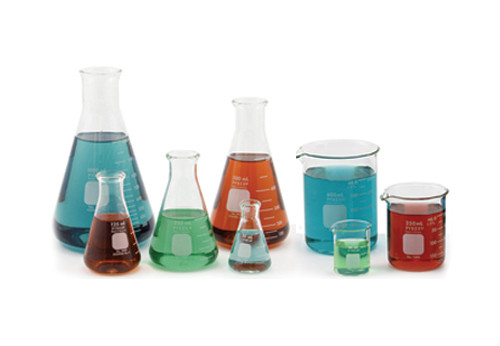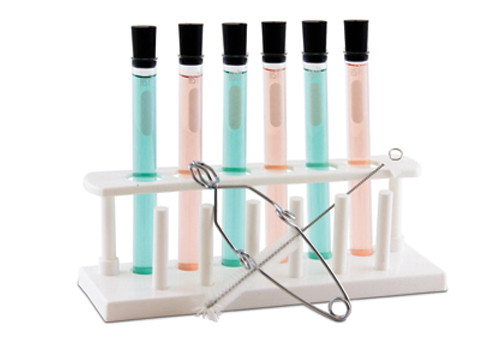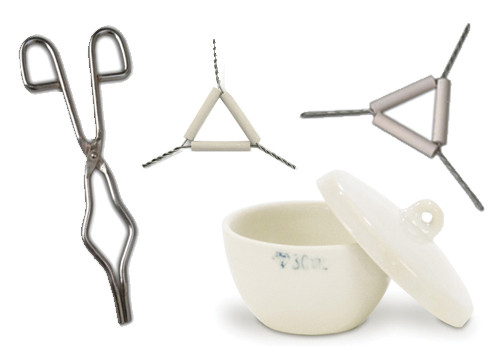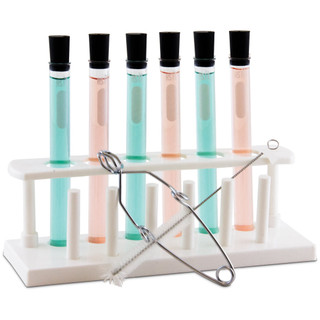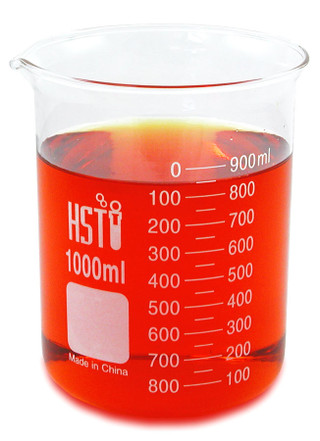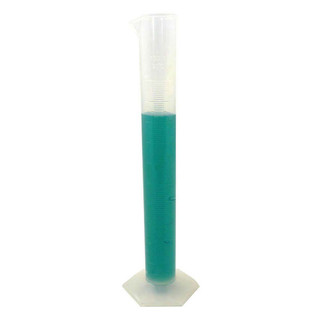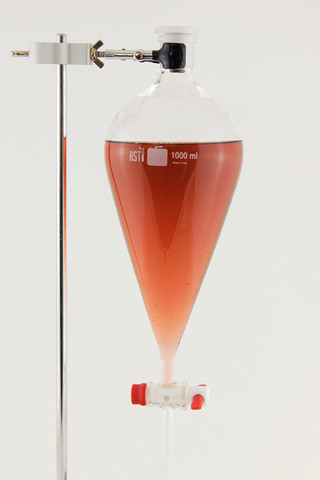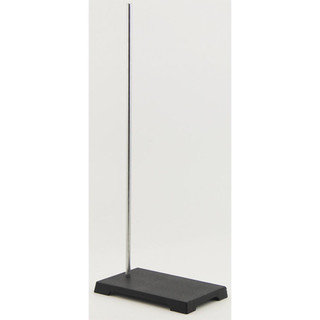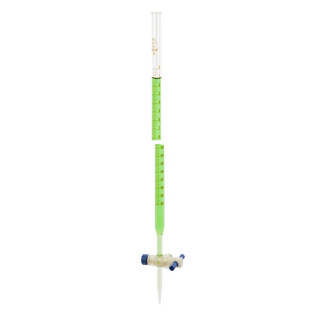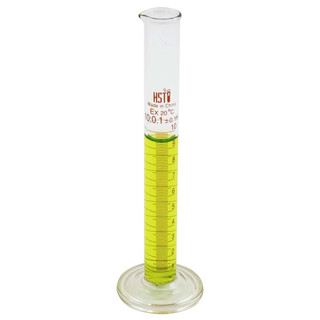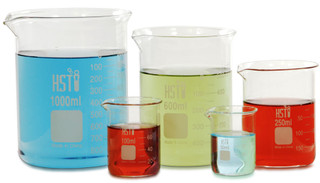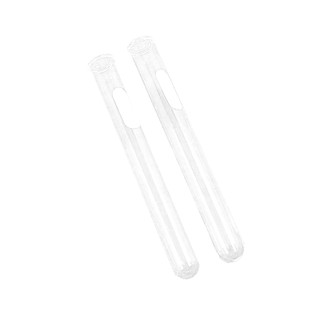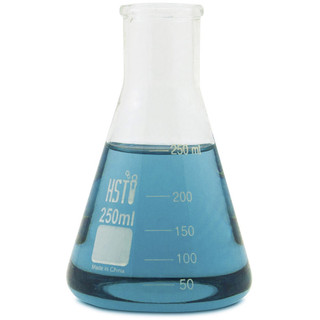Laboratory Glassware Accuracy
Our glassware has high-quality transparency, which makes it easier for students to read markings and measurements. For glass titrations, that means reliable and repeatable results. HST glassware doesn't leach chemicals, so your work will stay free of contamination. Perhaps most important, your students will feel like real scientists using real laboratory glassware during labs. Choose from glass beakers, flasks, graduated cylinders, test tubes, funnels, bottles, whole chemistry kits (including our deluxe chemistry glassware set), and supporting equipment: crucibles, evaporating dishes, mortar and pestles, stoppers, tubing, and spot plates.
Chemistry Glassware Durability
All our glassware is made with durable, chemical-resistant GG17 borosilicate glass (silica content of 80%). Silica, which makes up 59% of the Earth's crust, is known for its mechanical strength; GG17 allows our glassware to withstand high "thermal shocks," or damage caused by sudden swings in temperature. You'll be able to conduct chemistry experiments over heat without fearing broken glassware. That said, should your beaker, test tube, etc. become scratched or cracked, replace it to lower any risk of injury.
Plasticware Durability
HST's chemistry plasticware, made from strong polypropylene, is an affordable option for any lab work that doesn't require glassware. It's shatterproof, light weight, and durable. It may also be recyclable. Many customers choose plasticware for elementary school students and other young scientists. You can ensure a long shelf life for your equipment by taking two precautions: First, never put plasticware over an open flame or a hot surface, where it is likely to melt or catch fire! However, you may be able to microwave our plasticware in certain circumstances. Second, never use plasticware to hold strong acids, bases, or solvents — avoid very high and very low pH numbers. When in doubt, check the specs of the equipment and the safety sheet of the chemical. Choose from plastic beakers, graduated cylinders, test tubes, funnels, bottles, jars, and stoppers.
Cleaning & Storing Your Laboratory Glassware
Glass lab equipment works best when it’s clean and free from residue. Always wash your glass equipment after using it — the sooner, the better. This helps ensure chemicals don’t stick. You can use non-abrasive liquid soap to clean it by hand. You can also run borosilicate glassware through your dishwasher or an autoclave (in most cases) to sterilize it. Let your laboratory glassware air dry. Store your glass lab equipment in a place free from dust and where it's in a stable position where it won’t easily roll or fall. Test tube racks are a great investment!
Caring for Your Chemistry Plasticware
The processes for cleaning and storing your scientific glassware and plasticware are similar. Wash the latter by hand, in a sink, with liquid soap and a soft cloth or sponge. You can also run most plasticware through a dishwasher using the top rack. Keep drying temperature under 140F to ensure the integrity of the equipment.
Stock Up on Lab Glass Equipment
If you are buying in bulk for your school or university laboratory, our HST glassware and plasticware is available at a discount!
